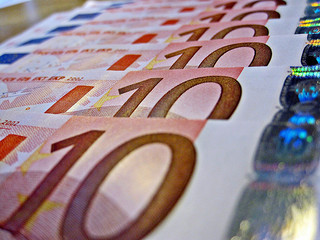Blog post
15/11/12Eurozone budget: 3 functions, 3 instruments

The three possible functions of the Eurozone budget (macro-economic stabilization, a tool for structural reforms, fiscal support for the banking union) require different types of EMU budgetary instruments. This is the main argument of this tribune by Eulalia Rubio, based on an intervention at the workshop “The EU budget: a driving force for changing Europe?” organised by Notre Europe – Jacques Delors Institute in Rome on 30 October 2012, in partnership with the Istituto Affari Internazionali, the Centro Studi sul Federalismo and the Institut für europäische Politik.




